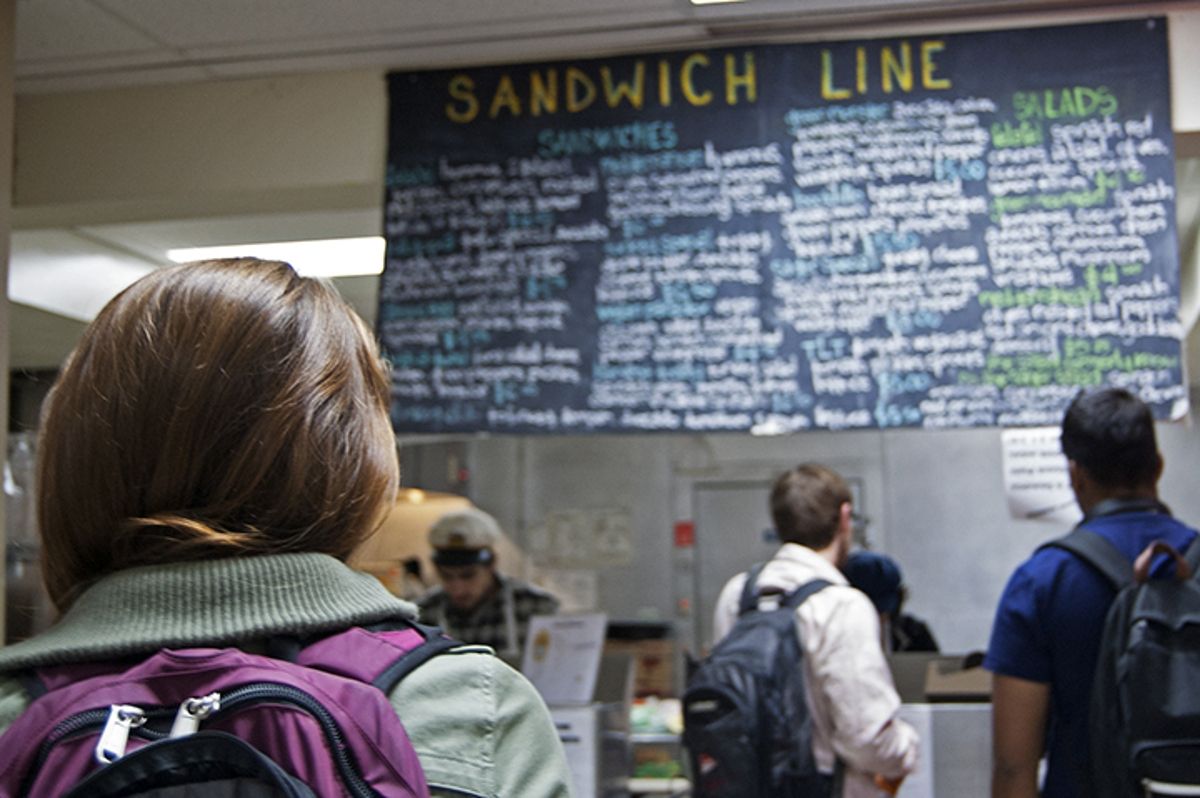Views expressed in opinion columns are the author’s own.
Worker cooperatives don’t often receive the recognition they deserve as examples of alternative forms of economic organization. The Maryland Food Co-op has recently received some publicity after announcing it will close at the end of the semester due to outstanding debt. An article in The Diamondback described the Co-op’s workers and customers’ impassioned push to remain open, while my colleague Liyanga de Silva called on the University of Maryland to offer the Co-op subsidies.
As the debate over the meaning of socialism has returned to relevance with the rise of self-described democratic-socialist politicians such as Rep. Alexandria Ocasio-Cortez (D-N.Y.), there is no better time to delve into the significance of worker cooperatives and their prospects for enabling social change.
Worker co-ops are businesses that the workers themselves own, and they share the profits that the business earns. This type of firm does away with the typical distinction between business owners generating wealth from their profits and employees of those businesses receiving wages rather than a share of the profit.
Though worker co-ops don’t constitute a complete economic system — they’re simply a type of firm and can exist in a variety of economic systems — they embody the principles of worker ownership and self-management that are applied more generally by different schools of thought in socialism.
Whereas recent discussions about socialism in the media center on government-controlled means of production, a more accurate depiction of socialism would be universal application of the social ownership and self-management already practiced by co-ops. Values of participation and democracy are widely hailed when applied to government, but in most workplaces, workers have little say in the direction of their organizations. Worker co-ops seek to extend those values to the workplace.
You don’t need to be a radical of any kind to appreciate worker co-ops. Economics research has established that worker co-ops, which economists identify as “labor-managed firms,” are viable in market economies and can be highly efficient. Nobel Memorial Prize-winning economist James Meade — certainly no radical — wrote of worker co-ops, “It may well be the case that the merits of participation should be so highly prized as to make the encouragement of such institutions a major objective of governmental policy.”
One of the best-known worker co-ops in the world is the Mondragon Corporation in the Basque region of Spain, which has interests in retail, finance and manufacturing among other industries. To be sure, Mondragon is flawed — it’s received criticism for coming up short on environmental issues and for a poor track record of exploiting foreign workers who are not part of the co-op. But the company, which was the 10th largest in Spain as of 2012, has succeeded in being a stable, worker-owned enterprise. As for self-management, workers elect their managers and directors. The pay ratio between its highest- and lowest-paid employees is 9-to-1, which stands in stark contrast to the outlandish CEO pay at normal large companies. In 2017, CEOs of S&P 500 companies earned about 361 times more than their average employees.
Worker co-ops around the world are hopeful examples of a more egalitarian business structure. It’s a shame that the Co-op is set to close, and I hope the efforts to save it are successful. But its closing doesn’t mean that the worker co-op model is any less valuable.
Zachary Jablow is a sophomore economics and government and politics major. He can be reached at zachjablow@gmail.com.



